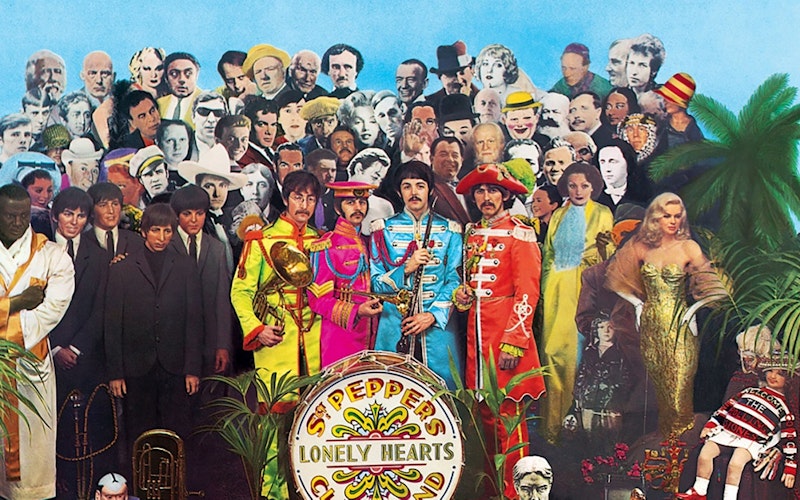
Music
The Eschatological Vision of Sgt. Pepper’s, 50 Years Later
It was 50 years ago that the Beatles released Sgt. Pepper’s Lonely Hearts Club Band. The music seemed to come from another world—a startling, sometimes frightening realm of previously unseen color, unheard sound, and unimagined possibility. This is the album that made rock music into art.
Throughout my life I have returned to the record again and again. As I have grown as a musician and a Christian, Sgt. Pepper’s has grown with me. I’ve come to hear the record not only as a musical landmark, but also as a powerful testimony to our understanding of creation and eschatology. It reminds me that God made the world, and that while it is good, it is not all that there is. Someday this life will give way to an ultimate reality beyond what we can imagine.
With Sgt. Pepper’s, the Beatles transformed the way the recording studio was used in popular music. Instead of conceiving of the studio as a means of transmitting the music to the listener, they used the studio to create the music itself. They layered tracks on top of each other, altered recorded sounds beyond recognition, and even created sounds never before heard. The album doesn’t hide the fact that it is “artificial”—created by musicians in a studio. Since it could not have been performed live, the album punctures the dominant illusion of popular music: that a recording is a record of a “real” event.
As a result, we are forced to confront the fact that the domain of sound is artificial, easily malleable, even fragile. Yet there is value and beauty in this fragility. Taken as a whole, the album introduces us to a wide variety of characters who, like us, are on a journey through this complex, fallen, yet beautiful world, seeking meaning through relationships, spirituality, the arts, and—yes—drugs … hopefully “getting better all the time.”
Out of the last chord of the reprise comes a new creation: A Day in the Life.
The musical and sonic complexity of each song supports the depth of expression in the lyrics. Many of the songs feature polyphonic vocal lines (multiple melodies that occur simultaneously or in conversation)–something that increases the richness of the musical landscape. In many songs, the “backup singers” function as characters who flesh out the emotional content of the lyrics. Many of the songs move between keys several times, which creates multiple levels of narrative tension. And of course, the album features an inexhaustible supply of surprising and supple melodies. All of these musical elements combine to create a multicolored musical world, a dappled microcosm for its characters to inhabit.
Chief among these characters are the members of "Sgt. Pepper's Lonely Hearts Club Band"–not the Beatles (wink wink). This fictional band frames the album with an overture and a reprise. As the record begins, we hear an orchestra warm up, the song start, and the crowd laugh. The lead singer introduces “Billy Shears,” and when the audience goes wild, Billy begins to sing “With a Little Help from My Friends.” Nine songs later, Sgt. Pepper’s Lonely Hearts Club Band returns to end the show.
But that is not the end of the story. Out of the last chord of the reprise comes a new creation: the extraordinary song "A Day in the Life"—the Beatles’ masterwork. Lyrically, the song revisits the main theme of the album: the richness and variety of the human experience. But the lyrics are utterly transformed and deepened by the music. The song eschews the normal verse-chorus form in favor of something completely new, including perhaps the most famous moments in popular music history: the extraordinary full-orchestra glissando that appears in the middle and end of the song. The form, texture, timbre, and dramatic shape of this final song bring into being a radically new world, one whose power and scope dwarf everything that came before it. After we hear “A Day in the Life,” the contrived world of Sgt. Pepper’s songs appears as just a shadow in the rear-view mirror.
"A Day in the Life" recalls the new heaven and new earth—a realm that, while being recognizable as a version of what has passed away, supersedes the previous world in every aspect, transforming our conception of our existence through its unique, unexpected, overwhelming, and fundamentally different nature. If we listen deeply on this 50th anniversary, we can recognize in Sgt. Pepper’s a powerful testimony to the eschatological hope we have in Christ, who loved us enough to fully enter our broken world in order to redeem it forever.
Topics: Music, Culture At Large, Arts & Leisure